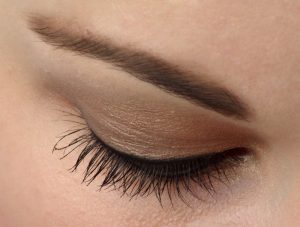 Sleep is a period of rejuvenation for the human body. Your body needs sleep to restore its energy levels. Sleep affects all aspects of your life including how you look, feel, cope with stress, your moods, how you get along with others, how you solve problems, and even how well you recover from illness. Both the quantity and quality of your sleep is important. Today, your Livonia, MI dentist, Dr. James Stewart, begins a two-part series on sleep states.
Sleep is a period of rejuvenation for the human body. Your body needs sleep to restore its energy levels. Sleep affects all aspects of your life including how you look, feel, cope with stress, your moods, how you get along with others, how you solve problems, and even how well you recover from illness. Both the quantity and quality of your sleep is important. Today, your Livonia, MI dentist, Dr. James Stewart, begins a two-part series on sleep states.
Sleep States
Sleep consists of two states: non-REM (NREM) and (REM). Non-REM sleep consists of four stages. A typical sleep pattern begins with non-REM sleep and cycles back and forth between non-REM and REM. REM sleep is sometimes referred to as dream sleep. Today Dr. Stewart explains non-REM sleep.
Non-REM Sleep
Each of the four stages of non-REM sleep can last from five to 15 minutes. A completed cycle of non-REM sleep progresses from stage one, through to the end of stage four before REM sleep begins.
Stage 1: During stage one you are falling asleep. Your eyes are closed but you can easily be awakened. Your brain activity begins to slow down and your muscles begin to relax. As you descend into stage one sleep, you may feel as if you are falling which may cause a sudden muscle contraction, or hypnic jerk. If aroused from stage one sleep, you may feel as if you’ve not slept.
Stage 2: During stage two your heart rate decreases and your body temperature cools. You become disengaged from your surroundings. Your body experiences periods of spontaneous muscle tone then muscle relaxation as you prepare to enter deep sleep.
Stages 3 and 4: Known as delta or slow-wave sleep, stages three and four are deep restorative sleep. Stage four is the more intense of the two. During these stages, your blood pressure decreases, the blood supply to your muscles increases, growth hormones are released that help build bone and muscle, tissue growth and repair occur, and energy is restored. Arousal from these sleep stages can result in a feeling of disorientation.
According to studies, the amount of sleep required as you age does not decrease. However, you spend less time in deep sleep stages and shorter periods of time asleep. As a result, older people tend to be lighter sleepers.
About Dr. Stewart
James R. Stewart, Jr, DDS, PC and our compassionate staff proudly serve patients of all ages from Livonia, Farmington Hills, Plymouth, Northville, Dearborn Heights, Garden City, and all surrounding communities. If you think you or a loved one is dealing with a sleep disorder, call our office today at (734) 425-4400, to schedule an appointment. At Dental sleep Medicine of Michigan, we are committed to forming trusting relationships with our patients so we can work together to achieve sound treatment and a future full of restful nights.






